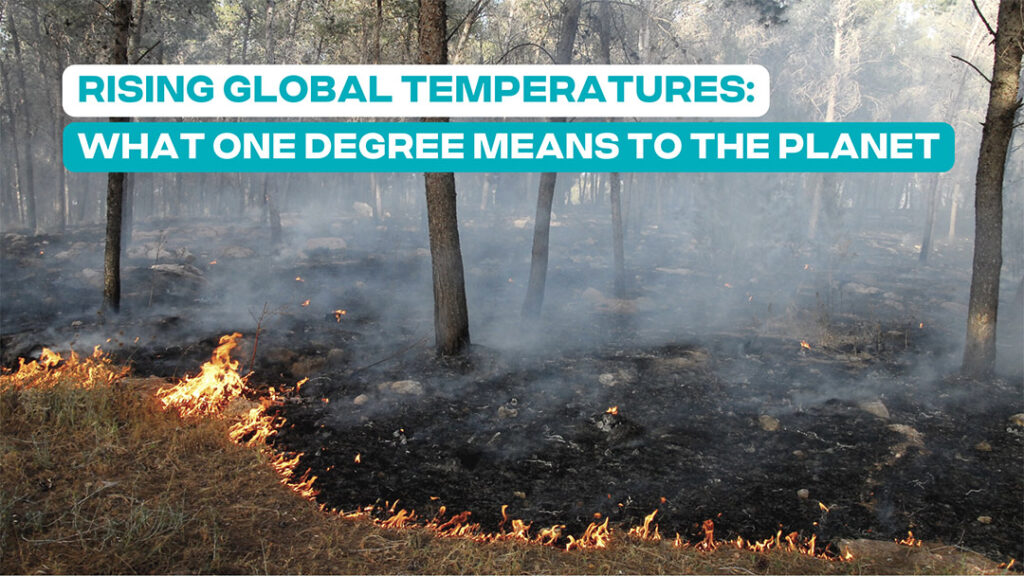As winter approaches, bringing colder temperatures and longer nights, our energy consumption inevitably increases, leading to a considerable rise not only in costs, but also in personal carbon footprint.
This often-overlooked aspect of the colder months plays a crucial role in the broader challenge of humanity’s impact on climate change. In this article, we aim to shed light on the impact of personal emissions during winter and provide actionable strategies for individuals to reduce their carbon footprint.
The significance of individual actions in combating climate change cannot be overstated, especially during winter when increased energy use for heating and lighting contributes to higher emissions. By adopting more mindful and eco-friendly practices during these months, each one of us can make a substantial impact.
Ten Ways to Reduce Your Personal Carbon Footprint in Winter
1. Smart Heating Practices
- Optimizing Home Heating Systems: Regular maintenance of heating systems ensures they run efficiently, reducing energy consumption. Consider upgrading to energy-efficient models if possible.
- Utilizing Programmable Thermostats: A programmable thermostat can significantly reduce heating costs and emissions by automatically lowering temperatures when you’re asleep or away.
- Emphasizing Insulation and Reducing Heat Loss: Proper insulation in walls, roofs, and around windows can dramatically cut down on the need for heating, thereby reducing emissions.
2. Energy-Efficient Lighting and Appliances
- Switching to LED Bulbs: LEDs consume up to 90% less energy than traditional bulbs and last much longer, making them an eco-friendly choice for winter’s longer nights.
- Using Energy-Efficient Appliances: Opt for appliances with high energy-efficiency ratings, especially for high-use items like refrigerators, washers, and dryers.
3. Sustainable Travel Choices
- Public Transport, Carpooling, and Reduced Travel: Minimize your carbon footprint by opting for public transport, carpooling, or telecommuting to reduce personal vehicle use.
- Eco-Friendly Vehicle Maintenance and Driving Habits: Regular maintenance and mindful driving habits like avoiding rapid acceleration can improve fuel efficiency and reduce emissions.
4. Mindful Consumption and Waste Reduction
- Reducing Waste and Recycling: Be conscientious about waste production, particularly during the holiday season. Recycle and compost wherever possible.
- Choosing Sustainable Products: Opt for products with minimal packaging, and those made from recycled or sustainable materials.
5. Diet and Food Choices
- Opting for Local and Seasonal Foods: Local and seasonal foods typically have a lower carbon footprint due to reduced transportation and storage needs.
- Reducing Food Waste: Plan meals and store food correctly to minimize waste, a significant contributor to greenhouse gas emissions.
6. Water Conservation
- Reducing Water Usage: Fix leaks and choose water-efficient fixtures. Consider collecting rainwater for outdoor use to minimise dependency on heated water.
7. Eco-Friendly Winter Clothing
- Choosing Sustainable Fabrics and Brands: Opt for clothing made from sustainable materials and produced by brands committed to eco-friendly practices.
8. Supporting Green Energy
- Investing in Renewable Energy Sources: Consider solar panels or other renewable energy installations for your home.
- Choosing Green Energy Providers: Select energy providers that offer green energy options, derived from renewable sources.
9. Community Involvement
- Participating in Local Environmental Initiatives: Engage in community programs focused on sustainability.
- Raising Awareness About Sustainability: Share knowledge and encourage others to adopt sustainable practices.
10. Continuous Learning and Adaptation
- Staying Informed About Sustainable Practices: Keep abreast of the latest developments in sustainability and climate science.
- Adapting Lifestyle Changes as New Information and Technologies Emerge: Be open to changing habits and adopting new technologies that promote sustainability.
The Global Impact of Personal Choices
Every small action to reduce personal emissions contributes to a global effort against climate change. For example, if numerous individuals choose energy-efficient lighting, the collective impact is substantial, it’s akin to reducing thousands of cars on the roads. These personal choices, especially in the winter, are crucial in the global context, demonstrating the power of individual contributions to a larger cause.
As winter poses unique challenges, it becomes even more important to adopt eco-friendly practices. Billion-Air encourages you to embrace these changes, contributing to the global fight against climate change.
For further guidance, Billion-Air’s resources and expertise in environmental sustainability are readily available, helping you make a positive impact this winter and beyond.




